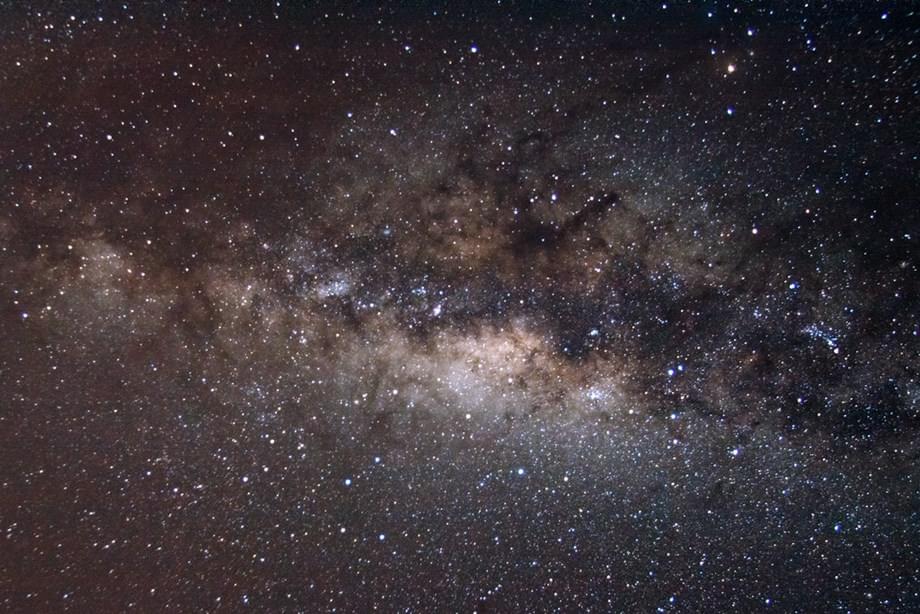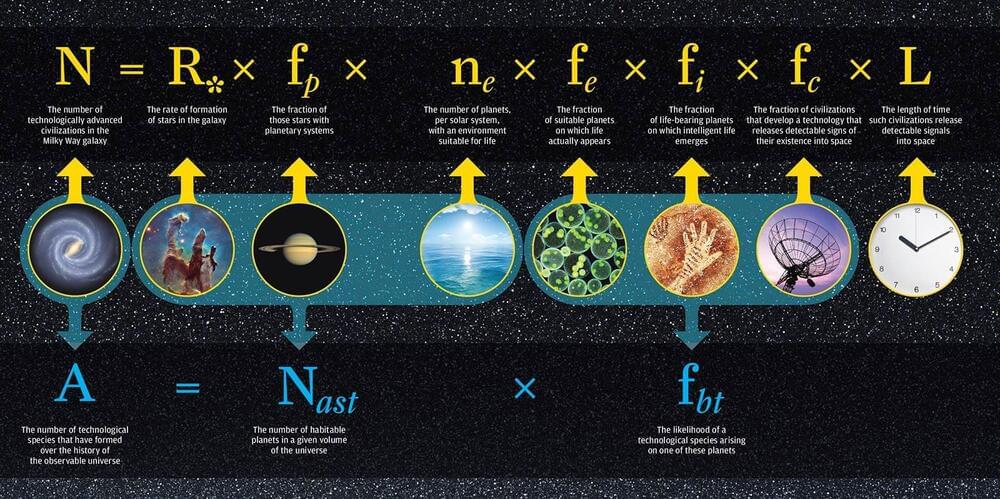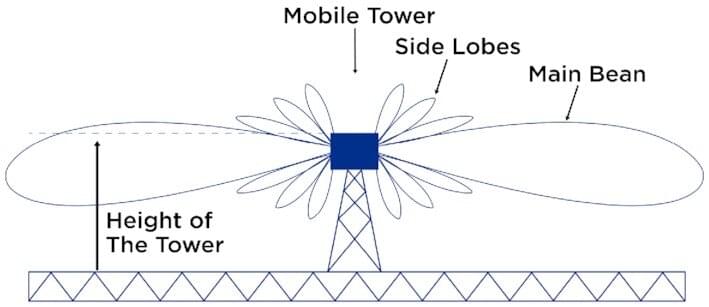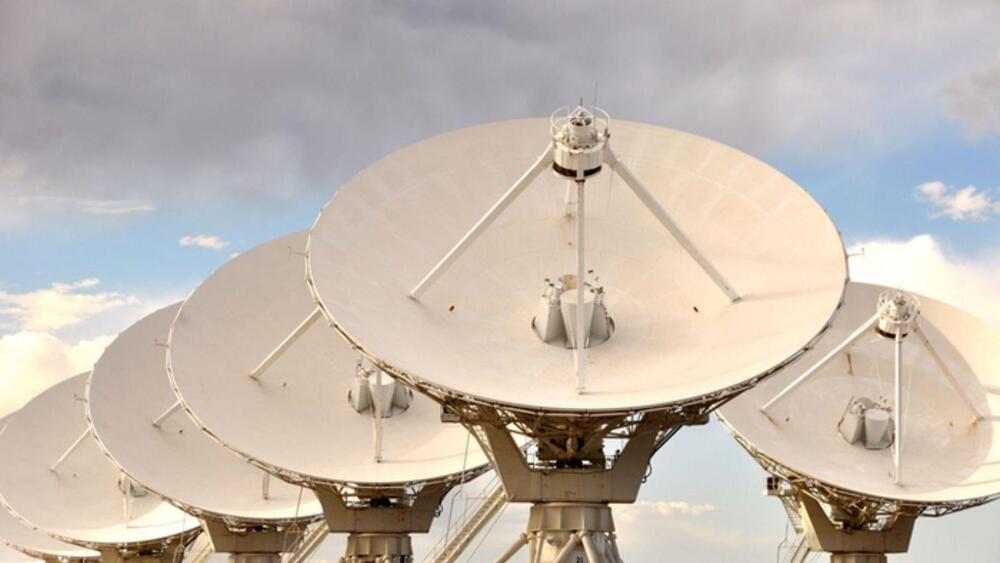Read more about Third of Milky Way’s most common planets could harbour life: Study on Devdiscourse.



The Breakthrough Listen Investigation for Periodic Spectral Signals (BLIPSS), led by Akshay Suresh, Cornell doctoral candidate in astronomy, is pioneering a search for periodic signals emanating from the core of our galaxy, the Milky Way. The research aims to detect repetitive patterns, a way to search for extraterrestrial intelligence (SETI) within our cosmic neighborhood.
The researchers developed software based on a Fast Folding Algorithm (FFA), an efficient search method offering enhanced sensitivity to periodic sequences of narrow pulses. Their paper, “A 4–8 GHz Galactic Center Search for Periodic Technosignatures,” was published May 30 in The Astronomical Journal.
Pulsars—rapidly rotating neutron stars that sweep beams of radio energy across the Earth—are natural astrophysical objects that generate periodic signals but humans also use directed periodic transmissions for a variety of applications, including radar. Such signals would be a good way to get someone’s attention across interstellar space, standing out from the background of non-periodic signals, as well as using much less energy than a transmitter that is broadcasting continuously.
Killer aliens are coming! Join us… and find out more!
Subscribe: https://wmojo.com/unveiled-subscribe.
In this video, Unveiled takes a closer look at the real reason why aliens WILL kill humankind! For decades, our species has debated and prepared for first contact… but real life isn’t like the movies. When aliens arrive, will we REALLY stand a chance of fighting them off? Of making peace? Or would we all be wiped out before we even knew they were here??
This is Unveiled, giving you incredible answers to extraordinary questions!
Find more amazing videos for your curiosity here:
What If Humanity Lives in a Tegmark Multiverse? — https://youtu.be/9Ts0pmYKZ3c.
What If Humanity Was a Kardashev Civilization? — https://youtu.be/omScpI80PCo.
0:00 Intro.
but live a different life, and make different decisions resulting in a totally different outcome in each universe.
We know this as the multiverse. But where did the idea for multiple universes come from?
Today we’re going to confront the idea of the existence of a multiverse as recent discoveries in physics and astronomy could point to their existence. Have we finally found evidence for a parallel universe, or is it something stranger we cannot comprehend?
PBS Member Stations rely on viewers like you. To support your local station, go to: http://to.pbs.org/DonateSPACE
Sign Up on Patreon to get access to the Space Time Discord!
https://www.patreon.com/pbsspacetime.
Whenever we open a new window on the universe, we discover things that no one expected. Our newfound ability to measure ripples in the fabric of spacetime—gravitational waves—is a very new window, and so far we’ve seen a lot of wild stuff. We’ve observed black holes colliding, and their oddly high masses challenges our understanding of black hole formation and growth. We’ve seen colliding neutron stars that have forced us to rewrite our ideas of how many of the elements of the periodic table get made. But what else might be hiding in the ripples’ of spacetime? Oh, I know: how about the gravitational wakes caused by planet-sized alien spacecraft accelerating to near light speed.
Episode Companion Playlist:
Check out the Space Time Merch Store.
https://www.pbsspacetime.com/shop.
Sign up for the mailing list to get episode notifications and hear special announcements!
Our homes are the places that define us; those warm private spaces that we depend on for work, respite, and haven from the harsh realities of the wider world. On Earth, the buildings and dwellings humans spend the majority of their lives in serve as reflections of our society’s culture, beliefs, and values. So if the shelters we make for ourselves truly mirror and influence our everyday lives, how might that sentiment be translated to living in space?
The kinds of structures future explorers might live in on other planets may be more critical to space exploration than sci-fi depictions of cities and homes in a galaxy far, far away suggest. As NASA’s desire for long-term human space colonization comes to fruition with planned crewed missions to Mars, establishing safe and well-made human settlements for life off-Earth is one of the agency’s most urgent tasks.
Putting down roots on Mars is an extremely ambitious goal to accomplish this century — but the reason why isn’t to do with rockets, necessarily. Rather, it is because any human settlement on the Red Planet will have to fight tooth and nail to experience even a modicum of ecological success.

Most of Mars appears to be an endless expanse of alien desert, without a river or lake in sight. However, liquid water definitely existed in the planet’s distant past. A new paper has also suggested that it’s also possible small quantities of water still might exist in places that otherwise appear barren.
Before China’s Zhurong (also known as Phoenix) rover went into hibernation mode last May, researchers from the National Astronomical Observatories and the Institute of Atmospheric Physics of the Chinese Academy of Sciences discovered something unexpected. Zhurong was exploring the Utopia Planitia region, which is near the planet’s equator. No liquid water was thought to exist at those latitudes. Yet when the rover beamed back data from its Multispectral Camera (MSCam), Navigation and Terrain Camera (NaTeCam), and Mars Surface Composition Detector (MarSCoDe), there was possible evidence for liquid water having been present less than half a million years ago.
“[Our findings] suggest [features] associated with the activity of saline water, indicating the existence of water process on the low-latitude region of Mars,” the researchers said in a study recently published in Science Advances.

Did humanity miss the party? Are SETI, the Drake Equation, and the Fermi Paradox all just artifacts of our ignorance about Advanced Life in the Universe? And if we are wrong, how would we know?
A new study focusing on black holes and their powerful effect on star formation suggests that we, as advanced life, might be relics from a bygone age in the Universe.
Universe Today readers are familiar with SETI, the Drake Equation, and the Fermi Paradox. All three are different ways that humanity grapples with its situation. They’re all related to the Great Question: Are We Alone? We ask these questions as if humanity woke up on this planet, looked around the neighbourhood, and wondered where everyone else was. Which is kind of what has happened.

Aliens on nearby stars could detect Earth through radio signals leaked from the planet, new research suggests.
Scientists from The University of Manchester and the University of Mauritius used crowd sourced data to simulate radio leakage from mobile towers to determine what alien civilizations might detect from various nearby stars, including Barnard’s star, six light years away from Earth.
The research, published in the Monthly Notices of the Royal Astronomical Society journal, found that only more technologically advanced civilizations would be able to detect the current levels of mobile tower radio leakage from Earth. However, as most alien civilizations are likely to have more sensitive receiving systems and as we move towards more powerful broadband systems on Earth, the detectability of humans from other intelligent beings will become more and more likely.

Karl G. Jansky Very Large Array telescope’s data will now help scientists hunt for technosignatures.
The hunt for alien life will get a shot in the arm with one of the world’s most powerful radio telescope arrays joining the mission, situated about 50 miles west of Socorro, New Mexico.
The National Science Foundation’s Karl G. Jansky Very Large Array (VLA) will now help gather the information that enables researchers to analyze emissions that only artificial transmitters make, which signals the existence of an advanced civilization far beyond.